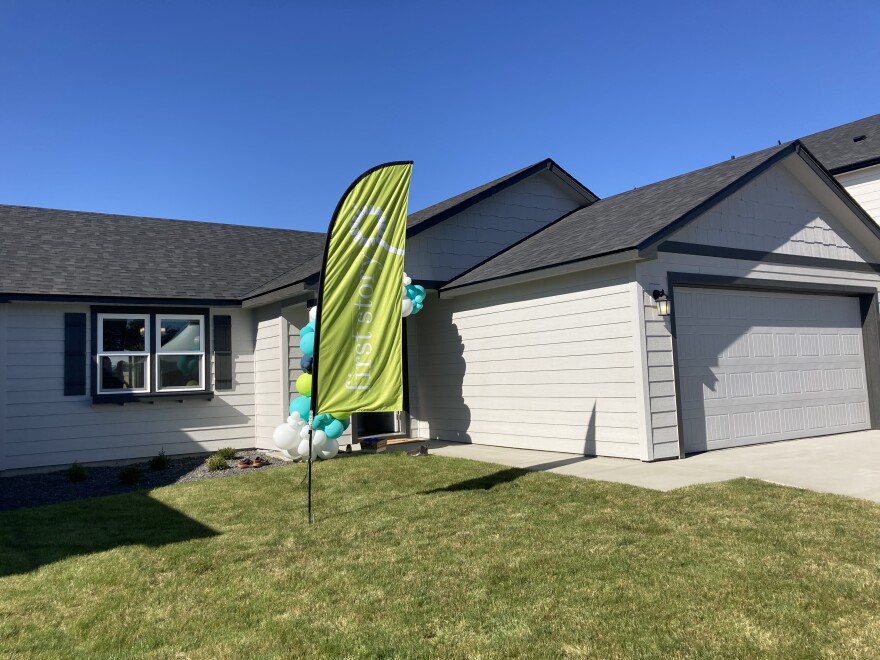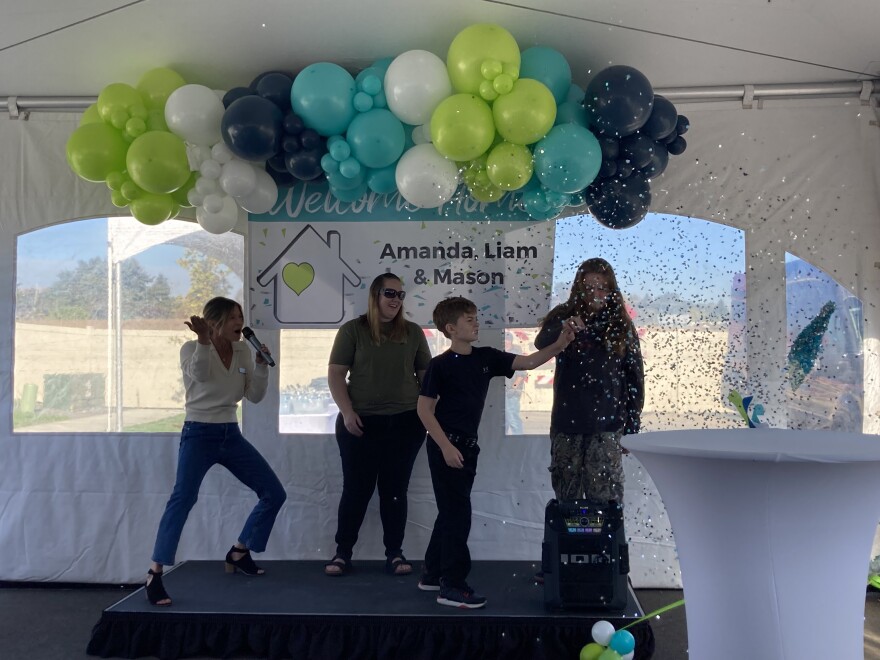In June, SPR ran a story about raising the walls of a home that would eventually be sold for zero down payment, zero interest, and zero cash-to-close loans.
Amanda Cole and her two sons got the keys to that home near Five Mile this week.
But their key ceremony is just one glimpse into the broader challenge of building affordable housing.
This wasn’t a normal home closure transaction for a lot of reasons.
First off, the keys to the house were hidden inside a confetti-filled balloon.
But more importantly, the Cole family walked into a home that they wouldn’t have been able to afford had it not been for the people gathered to celebrate outside.
First Story, a nonprofit founded by Oregon-based development company Hayden Homes, makes it a priority to “give a house away” every year – that is, sell the home for only what it cost Hayden Homes to build.
The buyer isn’t required to make any down payment or pay interest on a 30-year mortgage.
The annual-ish giving is part of co-founder Dennis Murphy’s philosophy of “give as you go.”
"It's been 24 years and we just gave our 120th house," he said. "So for the math people, we're a little ahead of schedule, which warms our heart.”

It’s one of the ways that Hayden Homes is fulfilling its self-assigned mission to bring more housing to people who make roughly an area’s median income.
“Not a lot of home builders want to do that," Murphy said. "It's getting more and more difficult to do that. But we're focused on it because we believe [in] that dream, [and] that everyone has the right to achieve that dream.”
But Hayden Home’s vice president of community engagement Deborah Flagan says it’s possible to incentivize more private developers to build housing that’s sold at a lower market rate.
Private companies can already build housing for way less than nonprofits can – Flanagan says the difference can be at least a 250 dollar difference per square foot. (Most of that is because grants require nonprofits to pay more for labor, Flagan said.)
Even though developers can build for less, they're facing rapidly increasing land costs.
That's where public partners can help.
"We've seen this happening in other states, we've seen it happen in the state of Oregon, having cities, school districts, ports, churches that actually have land that are available, and they come to the table and say, 'We have a piece of property,'" Flanagan says. "When you are able to bring a private-public partnership together, we are just being hired to come in as the general contractor, and we can build that home for what we build our normal homes for.”
Private-public partnerships can take on different ownership models. Community land trusts are one model that are growing in popularity.
But basically, if land cost is taken out of the equation, houses built on that land can be sold for much less.
Because Hayden Homes plans to keep "giving away" houses. But to really combat an affordable housing crisis, more people—in both the private and public spheres—are going to have to get into the giving game.


